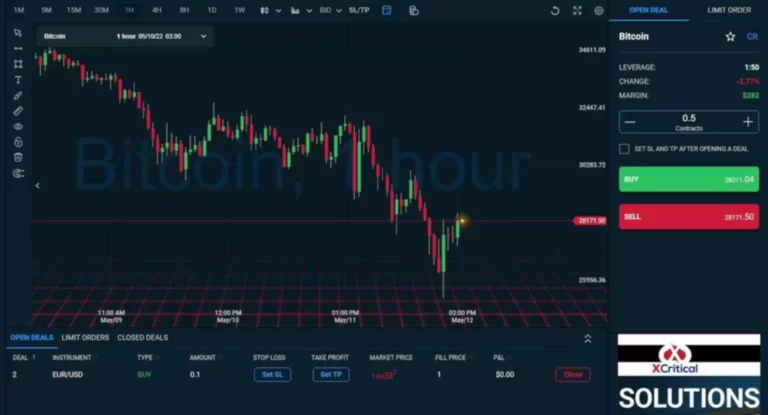Nevertheless, even DPoS is not exempt from shortcomings, notably concerning points related to decentralization and collusion. Recognizing the significance of decentralization, it turns into essential for users to opt for non-custodial cold wallets that grant them full control over their funds. DPoS often relies on the status of witnesses to instill belief within the community. If a witness loses credibility, it may influence their capability to contribute to the consensus process successfully.

In quick, consensus algorithms facilitate agreement amongst nodes, promoting belief and transparency within the decentralized ecosystem. Token holders with a comparatively small stake would possibly really feel less incentivized to take part in voting, as their influence is restricted. This may result in lowered decentralization as a good portion of the group won’t actively engage in community governance. DPoS permits for simpler upgrades and changes to the consensus mechanism without requiring a tough fork.

They should validate transactions and maintain the integrity of the blockchain. Failure to do so might see them quickly changed, fostering an atmosphere of accountability. In abstract, DPoS introduces a structured and democratic method to consensus, offering advantages corresponding to faster transaction times and enhanced scalability. It entails a dynamic voting process for electing witnesses and delegates, with a concentrate on effectivity and safety. No consensus mechanism is completely decentralized, as there could be some scope for centralization exists. If we take DPoS, the extent of decentralization is larger than within the PoS system.
Delegated Proof Of Stake
- With PoW, miners compete with one another in solving complex mathematical problems that require a tremendous amount of computing energy to complete and validate transactions.
- Lastly, DPoS can be more vulnerable to 51% assaults than traditional PoW techniques as a result of there are fewer nodes concerned in validating transactions.
- A user’s reward is determined by the share of the total stake they contribute.
- DPos substantially follows PoS which has a significant community-based element.
- This system offers all token holders the chance to turn into delegates, no matter their assets.
PoW is still the most popular and trusted consensus algorithm, but its sustainability is commonly thrust into the spotlight because of its dependence on a high quantity of power. Whereas Proof of Stake and Delegated Proof of Stake are currently not with out their issues, they appear to be good systems for cryptocurrency sustainability sooner or later. Witnesses are paid for their function in generating and including blocks to the blockchain. And, as in any democracy, they want a stable status to maintain up their recognition throughout token holders.
Cons Of Pow
PoW requires miners to take a position a significant amount of assets (e.g. electrical energy and computing power) to be able to participate within the consensus process benefits of delegated proof-of-stake. This makes it comparatively costly to participate in the network, which helps to make sure decentralization. Delegated Proof of Stake (DPoS) is an example or type of consensus mechanism utilized by some well-liked blockchain networks to achieve a distributed and decentralized consensus.
Whether you’re a hardened crypto advocate or just getting into the area, you’ll must know about Proof of Work (PoW) and Proof of Stake (PoS). Right Here, we’ll check out the most typical consensus methods for cryptocurrencies and study the pros and cons. This consensus mechanism has been gaining popularity these days and for good purpose. But as with anything that sounds too good to be true, there are some cons to assume about before jumping on board. Although most people are unaware of the distinctions between PoW vs PoS vs DPoS, having an opinion on these issues will put you forward of different traders.
Voting In Dpos:
While DeFi often thrives on decentralized platforms, some regulated exchanges, corresponding to Coinbase additionally provide restricted entry to DeFi tokens within a managed environment. Based in 2013 and created in 2014, BitShares is a decentralized platform for international funds. Co-founded by Daniel Larimer, it’s managed by a decentralized autonomous firm (DAC). BitShares token (BTS) holders have decision-making authority for project advancements. Previous efficiency is not a assure or predictor of future performance. The worth of crypto belongings can increase or lower, and you would lose all or a considerable amount of your purchase value.

When assessing a crypto asset, it’s essential for you to do your analysis and due diligence to make the absolute best judgement, as any purchases shall be your sole duty. The stage of decentralization ought to be measured on a scale quite than viewing it within the form of black and white. The number of witnesses in a DPoS system falls solely between 20 and one hundred. Networks additionally construct a status rating to assist https://www.xcritical.com/ voters make educated decisions when selecting their delegates.
In DPoS, token holders vote for a select number of delegates who validate transactions and produce blocks. This streamlined method enhances scalability and efficiency, balancing decentralization and velocity. First off, lets talk about what makes DPoS so interesting in the first place. This not only reduces vitality consumption but in addition accelerates transaction processing instances considerably. Many people believe that delegated proof of stake(DPoS) is a better consensus mechanism to proof of stake(PoS) as it permits way more flexibility within the governance of a blockchain network.
For instance, there is scope for forming delegate cartels via which the delegates can allocate validation power to selected witnesses. To summarize, witnesses are answerable for validating transactions and securing the underlying community. Also, they can be kicked out at any time in case of poor efficiency or malicious activities. So, while DPoS definitely has its advantages, its not with out its flaws. In The End, whether or not this consensus mechanism is correct for your blockchain network will rely upon a wide selection of factors corresponding to safety considerations, transaction quantity, and group values.
However, as it requires fewer delegates to manage the network, the query of whether it’s totally decentralized arises. Community users vote to elect delegates, also known as witnesses or block producers, who validate blocks. Only a restricted variety of delegates are allowed at a time, and they can be replaced via voting. Voters could stake tokens with out forex crm transferring them, instead using a staking service that represents their pursuits.
Blockchains with DPoS protocols require customers simply to stake coins to take part. Delegated Proof of Stake, as a new method of securing a network, was created by Dan Larimer, who also based Bitshares in 2014. In Accordance to its creator, DPoS can handle the next transaction volume and provide sooner confirmation instances than PoW and PoS techniques whereas being extra power environment friendly.
